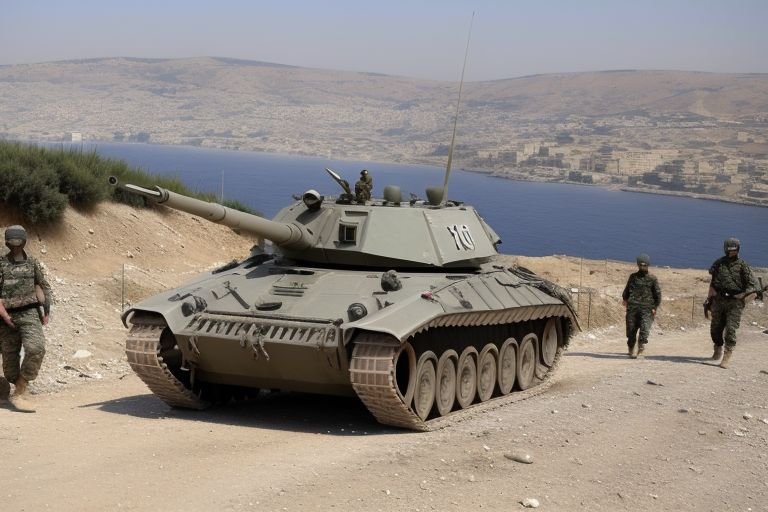The United States and its allies have urged a 21-day ceasefire on Lebanon-Israel border as the situation in the area becomes more and more tensed. This call seems to be made at a time when Israel is seemingly building up for an increase of ground operation in the south Lebanon to counter Hezbollah raids.
It has been in the last few weeks that the volatile situation on the border between Israel and Lebanon has worsened with repeated raids by Hezbollah and Israeli defense forces. It has already led to many casualties on the both sides of the conflict and many thousands of civilian have already been forced to flee border areas.
The United States and several European and Middle Eastern allies are calling for a temporary truce to save lives and facilitate negotiations. The proposal contained in the plan is, therefore, the total ceasefire of all military activities along the border for the next 21 days, and the use of the international mediators to cool down the tensions so as to avert the impending broader conflict in the region.
Israel, however, has voiced its concern over the cease-fire plan suggesting that it allows Hezbollah to recover and buy arms. The Israeli government has said that it will do whatever it takes to defend its people from Hezbollah and to remove the threat [from south Lebanon].
Resources on the conflict have reported enhancing turnover rates of Israeli troops, tanks and artillery along the Lebanon border. Such claims have stirred speculations that the Israel might be gearing up for a ground operation in southern Lebanon just like the past off ens of conflict with Hezbollah.
The international partners have developed a major concern over the possibility of a larger, regional conflict if nothing is done. The UN Security Council is calling for emergency meeting to address this issue while several heads of states and governments have been working extra hard to try and avoid further escalation.
Lebanon which is in the heat of the battle has urged all parties to exercise caution and respect the rights of civilian populations. The Lebanese government has claimed that any large-scale invasion by the Israeli forces would spell colossal consequences for the country, which has been struggling with awful economic and political crises.
On its part, Hezbollah said it will continue to fight against Israel and stated that it will broaden its operations should Israel enter into a ground war. The leader of the group, Hassan Nasrallah, has taken anti-Israel rhetoric to another level in the past couple of days using threats and calling for support.
The current crisis has its origins in the ongoing conflict between Israel and Hezbollah which has engaged in several wars. Since the 1990s, the biggest armed confrontation of the two parties occurred in 2006; hundreds of soldiers died, and infrastructures on both the Indian-administered and Pakistani-administered sides were damaged.
Given that the situation is still so unstable the countries close to the conflict and other regional players look to the developments very attentively. Syria as well as Iran and other players in the region have pledged support for Hezbollah while the US and other friends of Israel have restated their support for Israeli defense.
The proposed 21-day ceasefire glows some light on reduction of hostilities but depends on the extent to which all parties will be committed to a process of genuine negotiations. It’s important for opponents to note that even if the conflict is temporarily suspended, they will receive important possibilities for further talks.
The next few days will therefore be critical in deciding whether diplomacy will work or the region will again be plunged to another disastrous war, and the world watches. The consequences are high, not only for Israel and Lebanon but for the entire Middle East stability is at risk
